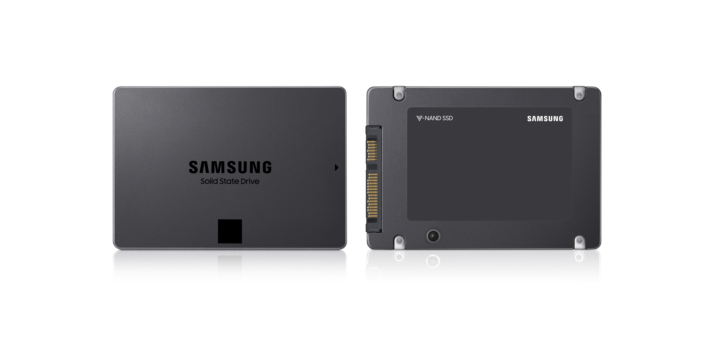

Samsung Electronics, the world leader in advanced memory technology, today announced that it has begun mass producing the industry’s first 4-bit (QLC, quad-level cell) 4-terabyte (TB) SATA solid-state drive (SSD) for consumers.
Based on 1-terabit (Tb) V-NAND with outstanding performance equivalent to the company’s 3-bit design, Samsung’s QLC SSD is expected to bring a new level of efficiency to consumer SSDs.
“Samsung’s new 4-bit SATA SSD will herald a massive move to terabyte-SSDs for consumers,” said Jaesoo Han, executive vice president of memory sales & marketing at Samsung Electronics. “As we expand our lineup across consumer segments and to the enterprise, 4-bit terabyte-SSD products will rapidly spread throughout the entire market.”
With its new 1Tb 4-bit V-NAND chip, Samsung will be able to efficiently produce a 128GB memory card for smartphones that will lead the charge toward higher capacities for high-performance memory storage.
Typically, as data stored within a memory cell increases from three bits to four, the chip capacity per unit area would rise and the electrical charge (used to determine information from a sensor) would decrease by as much as 50 percent, making it considerably more difficult to maintain a device’s desired performance and speed.
However, Samsung’s 4-bit 4TB QLC SATA SSD maintains its performance levels at the same level as a 3-bit SSD, by using a 3-bit SSD controller and TurboWrite technology, while increasing drive capacity through the use of 32 chips, all based on 64-layer fourth-generation 1Tb V-NAND.*
The 4-bit QLC SSD enables a sequential read speed of 540 MB/s and a sequential write speed of 520 MB/s, and comes with a three-year warranty.
Samsung plans to introduce several 4-bit consumer SSDs later this year with 1TB, 2TB, and 4TB capacities in the widely used 2.5-inch form factor.
Since introducing the 32-gigabyte (GB) 1-bit SSD in 2006, which ushered in the PC SSD era, to today’s 4TB 4-bit SSD, Samsung continues to drive new thresholds for each multi-bit generation.**
In addition, the company expects to provide M.2 NVMe SSDs for the enterprise this year and begin mass production of 4-bit fifth-generation V-NAND. This will considerably expand its SSD lineup to meet the growing demand for faster, more reliable performance across a wide span of applications, such as next generation data centers, enterprise servers, and enterprise storage.
*1Tb (128GB) x 32 = 4TB (4,096GB)
**Samsung’s mass production history of SSDs in bits per cell
Company expands AI order-taking solution to tackle rising labor costs and improve customer experience Hi…
Outperforming competitors like OpenAI and ElevenLabs across standard datasets and specialized jargon recognition, Jargonic sets…
NVIDIA announced KAI Scheduler, the open-source version of the NVIDIA Run:ai Scheduler, available as a…
Partnership will deliver revolutionary, emissions-free travel in the UK, including greater connectivity for Virgin Atlantic…
New Vicor DCM3717 and DCM3735 DC-DC power modules support the growing trend of 48V-centric power…
DigiKey, a leading global commerce distributor offering the largest selection of technical components and automation…